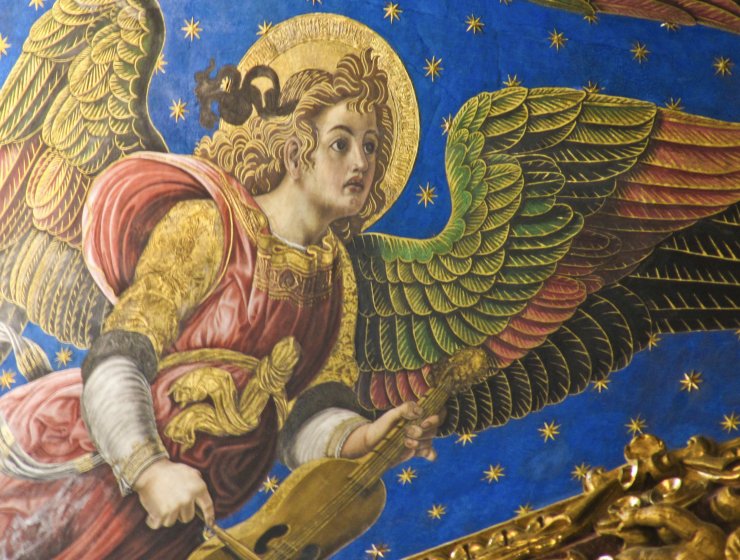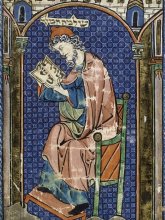
-Index-
Presentation
Researching in the margins and reading between the lines
Vicent Josep ESCARTÍ
Original title: Investigar als marges i llegir entre línies
Articles
Parallelism between the Mahometan intercession and the Llibre del gentil e dels tres savis. Another perspective
Sergi ESPINOSA POLO
Original title: Paral·lelismes entre la intercessió mahometana i el Llibre del gentil e dels tres savis. Una altra perspectiva
Keywords: Eschatology, Islam, Ramon Llull.
The parliament of the Saracen in the Llibre del gentil e dels tres savis exemplifies Ramon Llull's way of showing us the cultural and religious elements that revolve around Islam. We will see how easy it is to see the degree of fidelity that underlies the parliament of the Saracen if we compare it with the Koran and the Sunna. On the one hand, the Lullian vision of the Islamic religion will be analysed. On the other hand, the aim is to highlight the respectful way in which Ramon Llull treated both the Muslims in his work and Islam, which was far removed from the aspirations of the time.
Catalan Bandits in the War of the Alpujarras: The Company of Don Antic Sarriera
Víctor J. JURADO RIBA
Original title: Bandolers catalans a la guerra de las Alpujarras: la companyia de don Antic Sarriera
Keywords: Alpujarras, Bandits, Don Antic Sarriera, Moorish.
The War of the Alpujarras was one of the central conflicts of the end of the 1560s for Philip II. The mobilization was massive and urgent in many cases, with the participation of a large part of the Castilian cities and the deployment of contingents that would offer support for the war but would cause severe discipline problems. Catalonia was not alienated from this mobilization. Among the nobles and specific personalities, the bandit soldiers of Antic Sarriera stood out. Both their leader and this contingent, raised in Girona’s counties, with special attention to Empordà, left a documentary trace that will be analysed in this study.
The bad life of some, consequences for others: the rogues and their familiar surroundings in the Kingdom of Majorca (16th and 17th centuries)
Victòria BAUÇÀ NICOLAU
Original title: La mala vida d’uns, conseqüències per a les altres: els “vividors” i el seu entorn en el Regne de Mallorca (segles XVI-XVII)
Keywords: Alcohol, Bad life, Gambling game, Poverty, Violence, Wine, Woman.
The literature, the theatre, and the art of the Baroque period usually showed the archetype of the drunk man who took refuge in the tavern of his life. This figure existed in popular society, where the types were diversified, and vices expanded. If you pay attention to the documentation, there are several cases of men of bad life whose behaviour had serious consequences on the women in their environment, which would be summed up in violence and poverty. To emerge from this situation, these women used different strategies such as seeking support from acquaintances and family members, but also from the institutions of the Kingdom of Majorca.
The memory of the plagues in the ancient Kingdom of Valencia: from the marginal note to the centrality (15th-17th century)
Vicent Josep ESCARTÍ
Original title: La memòria de les pestes a l’antic Regne de València: de la nota marginal a la centralitat (s. XV-XVII)
Keywords: Bertomeu Ribelles, Diaries, Francesc Gavaldà, News, Plague, Vicent Arcaina.
This article takes a look at the Valencian memorial literature that contains information on the different waves of plague, from the 14th to the 17th century. The plague goes from being a “marginal” to a "central" theme. It moved from brief annotations to specific narration, with works such as those by Francesc Gavaldà and Vicent Arcaina. Bartomeu Ribelles, at the end of the 18th century, was the first to make a study of epidemics in Valencia.
Desecration and purgation of the chantre of the cathedral of Orihuela Domingo Bou y Miralles
Emilio CALLADO ESTELA
Original title: Descarrío y purgación del chantre de la catedral de Orihuela Domingo Bou y Miralles
Keywords: 17th century, Church, Crimes, Orihuela, Reformation.
This article analyzes the case of the cantor of the cathedral of Orihuela, Domingo Bou y Miralles, whose love affairs with a young widow would earn him exile between 1691 and 1692, at the request of the local bishop Antonino Sánchez de Castellar and by order of the crown. A little more than half a year of purgation at court was enough for the pre-blessed, it seems, to stop join astray and return to the fold, since then giving himself up to the ecclesiastical office that was his own.























































































